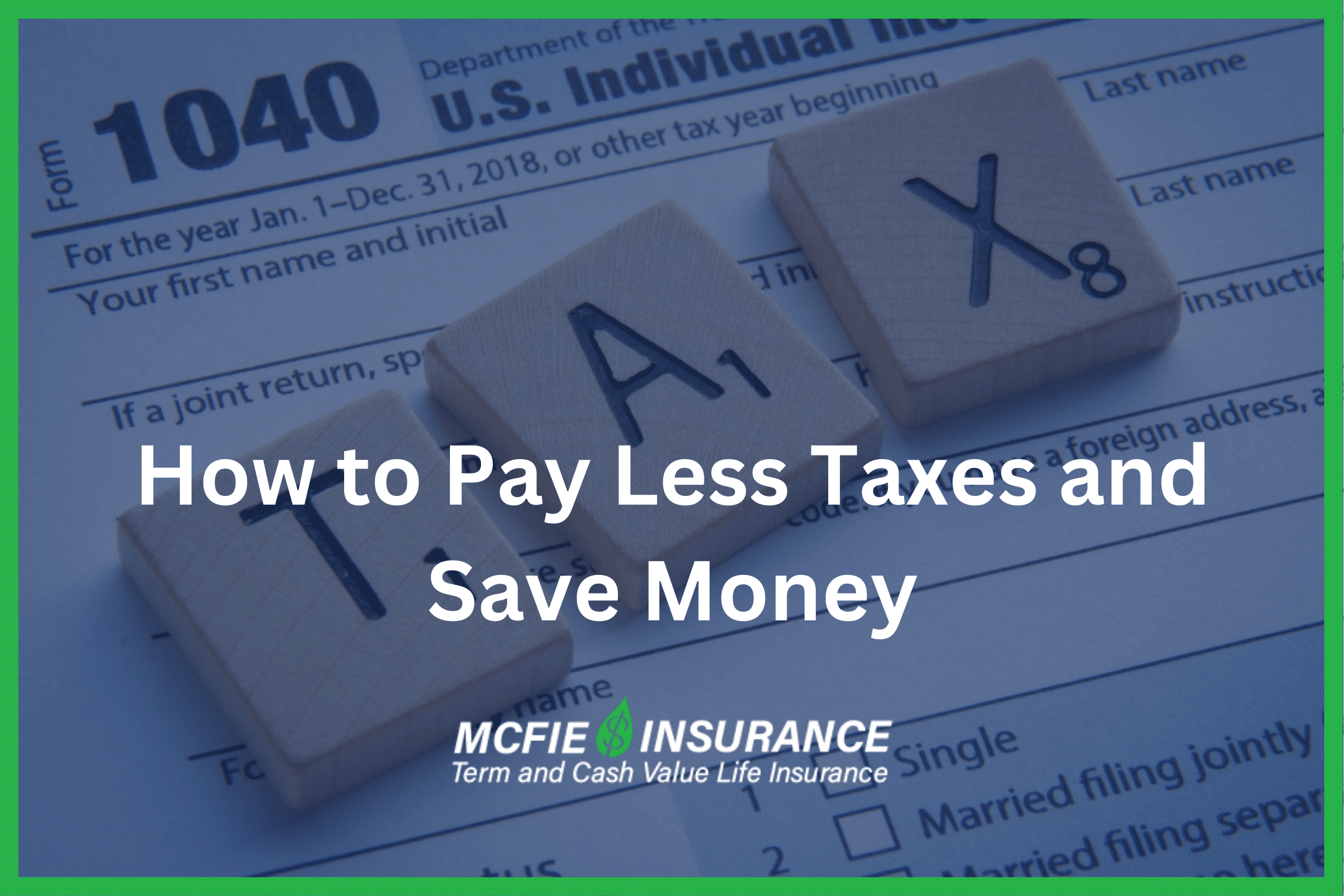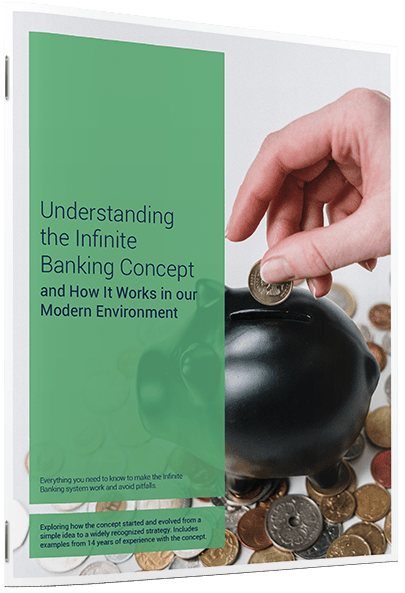702-660-7000
702-660-7000

It’s important to know you don’t have to overpay. With the right strategies, you can legally reduce your annual tax bill and keep more of your hard-earned money working for you. At McFie Insurance, we believe wealth isn’t just about what you earn—it’s about what you keep. Let’s explore some common ways to lower your tax liability.
If you’re self-employed, even part-time, then you’re likely leaving money on the table. The IRS allows a wide range of deductions for business-related expenses—things like mileage, advertising costs, software subscriptions, business meals, and even your phone and internet bills (if used for business).
One of the most overlooked deductions is your home office. If you have a space in your home dedicated exclusively to work, you may be able to write off a portion of your rent, utilities, and maintenance costs. That space doesn’t need to be big—it just needs to be used regularly and exclusively for business.
Just remember: while these strategies are powerful, it’s wise to work with a qualified tax professional to ensure you’re maximizing your deductions within the rules.
One lesser-known tax strategy involves the Augusta Rule, which allows homeowners to rent out their personal residence for up to 14 days per year without having to report the rental income. This can be useful for business owners who hold meetings or events at home. The key is ensuring the rented space is not your primary place of business and that the rental rate aligns with fair market value for similar spaces in your area. When done correctly, this strategy can offer a tax-free benefit without raising red flags.
Combining business travel with personal vacation time? It’s possible to deduct certain business-related expenses from the trip—such as airfare, lodging, or meals during workdays—if the primary purpose of the travel is business-related. Just be sure your documentation is solid and your expenses are legitimate. Attempting to write off a beach getaway as a “business meeting” won’t hold up under IRS scrutiny.
Businesses also have the opportunity to accelerate depreciation on qualifying assets. Under current tax law, bonus depreciation allows for a 100% deduction on eligible business purchases—like computers, machinery, office furniture, or even vehicles—placed into service within the tax year. However, this generous provision is scheduled to phase down gradually and will be completely eliminated by 2026 unless extended by new legislation. If you’re considering large investments, acting sooner rather than later may yield the greatest tax advantage.
Business owners might contemplate adjusting their compensation structure. By shifting some income from salaries to owner distributions, they could potentially decrease their tax bill. But, this strategy requires professional advice to ensure IRS compliance.
One of the challenges of being self-employed is bearing the full weight of payroll taxes. Unlike traditional employees—who split the 15.3% Federal Insurance Contributions Act (FICA) tax with their employer—self-employed individuals are responsible for the entire amount themselves. This tax covers both Social Security and Medicare contributions and can impact your bottom line.
Fortunately, the IRS recognizes this added burden and provides a valuable tax break. Self-employed individuals are allowed to deduct half of their self-employment tax—effectively the “employer” portion—when calculating their adjusted gross income. This deduction is available regardless of whether you itemize deductions and helps to reduce your overall taxable income.
In practical terms, this means if you pay $10,000 in self-employment taxes for the year, you can deduct $5,000 from your taxable income. While this doesn’t reduce the self-employment tax itself, it does ease your income tax liability, allowing you to keep more of what you earn.
Although this deduction is automatically applied when you file your tax return, it’s worth considering how your compensation structure could be optimized to further benefit from this provision. For example, you may be able to adjust your business operations or payment strategy in a way that aligns more favorably with your overall tax and financial goals. Consulting a qualified tax advisor can help you explore these options and develop an approach to managing your income and tax obligations effectively.
Several tax credits are tailored for those incurring higher education expenses. The American opportunity tax credit, designed for the initial four years of college, offers up to $2,500 annually per student. Not only does it reduce the amount of tax owed, but if the credit exceeds the tax liability, a refund of up to $1,000 may be issued.
Another valuable credit is the lifetime learning credit, worth up to $2,000 annually. It’s designed for ongoing education that enhances job-related skills. With the temporary pause on student loan interest due to COVID-19, leveraging these credits can amplify future tax savings and reduce educational debt.
A 529 plan can be a good tool for individuals planning for their children’s future education or considering furthering their studies. Though federal tax breaks don’t apply to the contributions, numerous states provide deductions on state income taxes for contributions made. The beauty of the 529 plan lies in its tax-free withdrawals, provided they are used for educational purposes.
The flexibility of the plan also permits unused funds to be reassigned to other beneficiaries, including yourself, or used towards student loans. A recent addition allows transferring funds to retirement accounts, providing a versatile avenue for future financial planning while reaping tax benefits.

Understanding the Infinite Banking Concept and How It Works In Our Modern Environment 31-page eBook from McFie Insurance Order here>
For taxpayers who opt to itemize their deductions rather than take the standard deduction, there’s an important opportunity to reduce taxable income by deducting either state and local income taxes or state and local sales taxes. This is beneficial for residents of states with no state income tax, such as Texas, Florida, or Washington—where the sales tax deduction becomes a practical and valuable strategy.
When choosing to deduct state and local sales taxes, taxpayers are allowed to include not only routine purchases but also significant expenditures made throughout the year. Large-ticket items such as automobiles, boats, major home appliances, luxury clothing, and electronics can increase the amount of sales tax paid—and therefore, the value of the deduction.
It’s important to be mindful of the IRS limit on this deduction. The total amount that can be claimed for all state and local taxes—whether income or sales tax, combined with property taxes—is capped at $10,000 per year ($5,000 if married filing separately). Even so, for those who make large purchases or live in high-sales-tax regions, this deduction can still provide considerable relief.
Maximizing this deduction requires careful record keeping or the use of the IRS Sales Tax Deduction Calculator. Either way, strategic planning around this deduction can help individuals reduce their overall tax burden and keep more of their income—particularly when leveraged as part of a broader tax-saving strategy.
Charitable donations—whether made via payroll deductions, checks, cash, or the contribution of goods—are tax-deductible, provided the taxpayer itemizes their deductions. However, since the 2017 Tax Cuts and Jobs Act raised the standard deduction, fewer taxpayers are itemizing, which has made it more challenging to claim charitable deductions in the traditional sense.
One increasingly popular alternative is the donor-advised fund (DAF). This financial tool allows individuals to “bundle” several years’ worth of charitable donations into a single year, potentially exceeding the standard deduction threshold and unlocking a larger immediate tax benefit. The donor can then distribute those funds to charities gradually over future years. It’s an efficient and strategic way to maintain regular charitable support while maximizing tax savings.
Another avenue for long-term charitable planning involves leveraging life insurance. Individuals who maintain well-funded whole life insurance policies can use the accumulated cash value as a reserve to support large charitable projects. These policies allow for temporary depletion of funds with the confidence that the reserves can be rebuilt over time. This approach can stabilize a charitable giving program, especially for those interested in making significant philanthropic contributions without undermining their personal financial security.
Once individuals reach the age of 73, they are required to begin taking Required Minimum Distributions (RMDs) from qualified retirement accounts such as traditional IRAs and 401(k)s. These distributions are considered taxable income, which can increase a retiree’s tax burden.
A powerful strategy to reduce this burden is to make a Qualified Charitable Distribution (QCD). This allows individuals to donate their RMD—up to $100,000 per year—directly to a qualified charity. By doing so, the amount donated is excluded from taxable income, effectively satisfying the RMD requirement while avoiding the income tax that would otherwise apply.
This strategy provides a dual benefit: retirees fulfill their legal distribution obligations and, at the same time, support charitable causes they care about. For those looking to combine tax efficiency with meaningful philanthropy, donating RMDs can be a thoughtful and impactful approach.
When you sell assets like stocks or real estate, it’s crucial to accurately calculate the cost basis to determine the capital gains. One sometimes overlooked method is to include reinvested dividends in the cost basis, which increases the original investment amount and can reduce potential capital gains tax. This will primarily be for people who have recently inherited their parent’s 401k, IRA, distributed in 10 years at the tax rate of the heir.
Selling a house may subject you to capital gains tax. However, there are exemptions available. Importantly, funds spent on home improvements can also be added to the original cost of the house, reducing potential taxable gains. By strategically factoring in these considerations, homeowners and investors can significantly reduce their capital gains tax obligations.
Donating appreciated stocks is a dual-benefit strategy. It not only supports charitable organizations but also helps donors bypass capital gains tax on the appreciation. After donating, if you choose to repurchase the stock, your cost basis will reset, often at a higher value. This newer basis can be advantageous for future sales.
Some people opt for donor-advised funds for this strategy; however, direct stock donations to charities are equally effective. The essence of this tactic is to allow individuals to support causes they believe in while ensuring they aren’t unnecessarily burdened by taxes on their appreciated assets.
Military reserve members who travel more than 100 miles and stay overnight for duty can deduct their unreimbursed travel expenses. This can include lodging, meals, and transportation costs. For active-duty members, moving expenses due to changes in station are also deductible.
These tax breaks honor the sacrifices military members make and provide some financial relief. By taking advantage of these deductions, military personnel can significantly reduce their taxable income, ensuring they retain more of their hard-earned money.
Navigating the landscape of local and state tax opportunities can be rewarding. Even though recent federal reforms have eliminated or capped some deductions, many states provide incentives or offer different criteria that may be beneficial. Local and state agencies sometimes introduce additional deductions or credits not available at the federal level.
By staying informed and proactive about local tax policies, residents can maximize their savings, ensuring they leverage every available opportunity to reduce their overall tax liability.
The Earned Income Tax Credit (EITC) is a boon for many, especially those with lower incomes. For 2023, the EITC can be as much as $7,430, though the actual amount depends on one’s income and family size. What’s remarkable about the EITC is that even if you owe no federal income taxes, you could still receive a refund if eligible.
It’s designed to benefit those who work but have low to moderate incomes, helping reduce their tax burden or even turning it into a potential refund, ensuring more financial stability for the recipients.

An easy read and a perfect introduction to whole life insurance and The Perpetual Wealth Code™ Available in eBook or Audiobook format.
Download here>
One of the most straightforward methods to decrease your tax liability is contributing to a retirement account. The majority can take advantage of this method. When you deposit into traditional 401(k) and IRA accounts, you can lower your taxable income. Notably, these contributions grow without taxes until retirement. Alternatively, Roth accounts, which are post-tax, allow your funds to grow tax-free and be withdrawn tax-free during retirement. For traditional IRAs, even if you miss the end-of-year deadline for 401(k)s, you can contribute until the tax submission deadline.
Another beneficial approach is through Health Savings Accounts (HSAs). If you’re covered by a high-deductible health plan, you can reduce your taxable income by contributing to an HSA. Funds deposited into these accounts not only offer an upfront tax deduction but also grow tax-deferred. Moreover, you can use them tax-free for approved medical expenses. Leftover balances transfer to the next year, much like retirement accounts.
If you don’t have a high-deductible plan but your employer provides Flexible Spending Accounts (FSAs), you can allocate pre-tax dollars towards a variety of health-related costs. These might range from regular doctor visit copays to dental procedures. However, remember that any unspent money might be lost by year-end. It will be list in an FSA unless the plan offers a grace period of carry over.
The Inflation Reduction Act of 2022 extended tax credits for homeowners and businesses making energy-efficient improvements. These credits can be claimed for a variety of installations up to the year 2032. Investing in energy efficiency now can yield both immediate tax benefits and long-term savings on energy bills.
While gambling winnings are indeed taxable, there’s a silver lining for those who don’t always walk away winners. By meticulously recording gambling losses, these amounts can be used to offset winnings, potentially reducing the taxable amount.
It’s essential, however, to ensure proper documentation, as the IRS may require evidence in case of audits. This practice ensures that individuals are only taxed on their net gambling income, providing relief from potentially hefty tax bills on gross winnings.
Remember, the best way to keep your money away from casinos, is never gambling in the first place, consider something like whole life insurance, that isn’t a gamble.
When a policy owner takes a policy loan from a life insurance policy for investment purposes the interest on the loan can be a personal tax deduction.
This concept can be extended to business owners who take a policy loan, use it for deductible business improvements or expenses and the interest on this loan can be a tax deduction for the business, and help the business owner to get more money out of the company without payroll taxes.
Remember, while tax codes can evolve and change, these strategies are based on existing regulations. Always seek expert advice to make informed tax decisions.
 Ben T. McFie
Ben T. McFie
There's a lot of confusion around finance; there's so much to know and it's frustrating when you don't know enough to make the best financial decisions. I like to bring clarity to financial matters so people can make good financial decisions that will help them live wealthier more fulfilling lives.